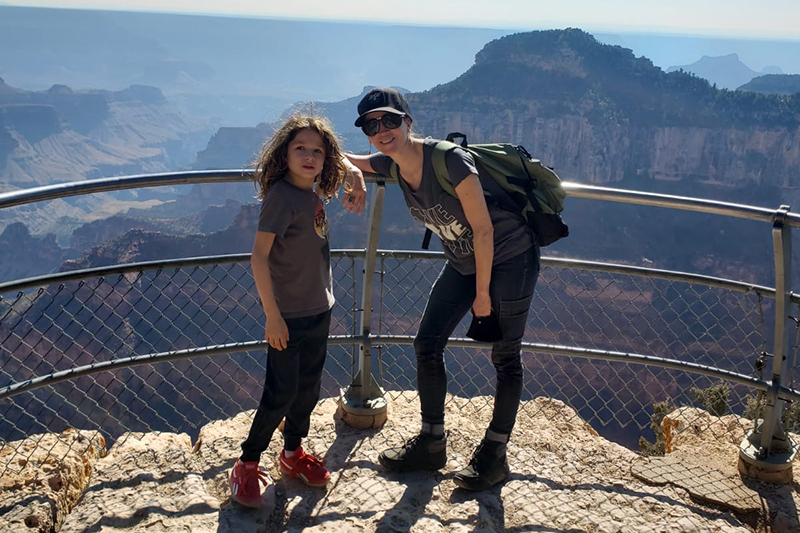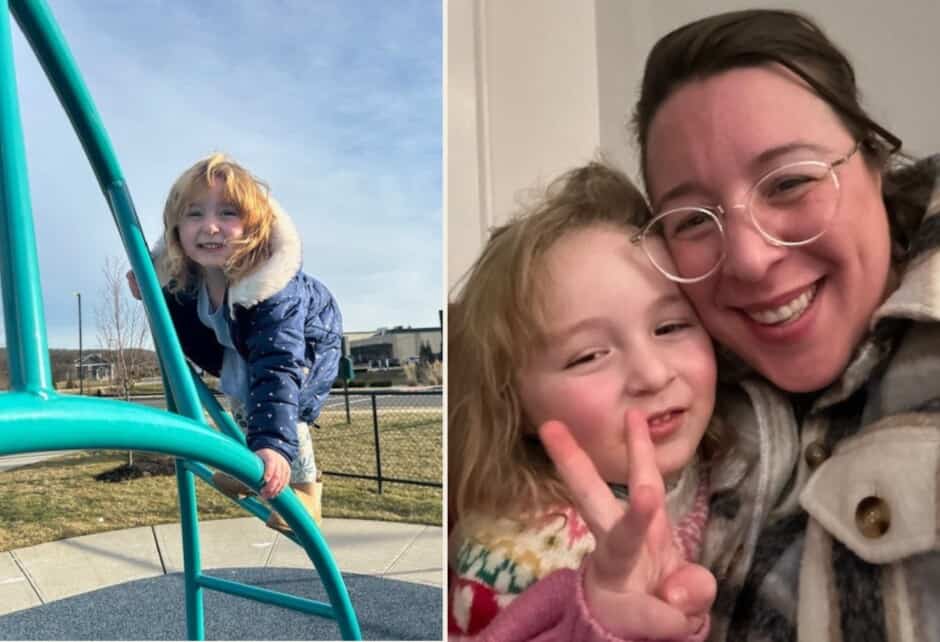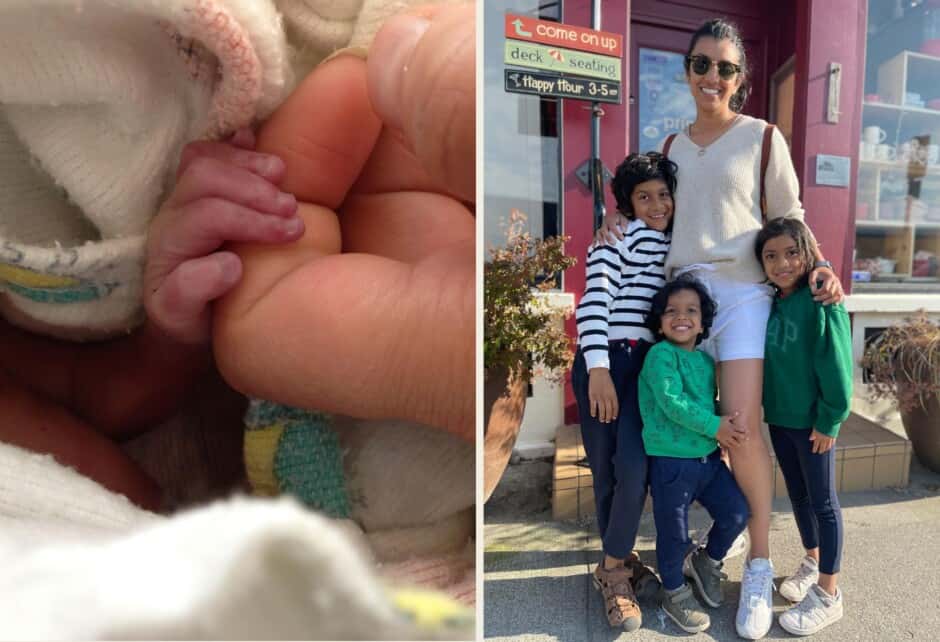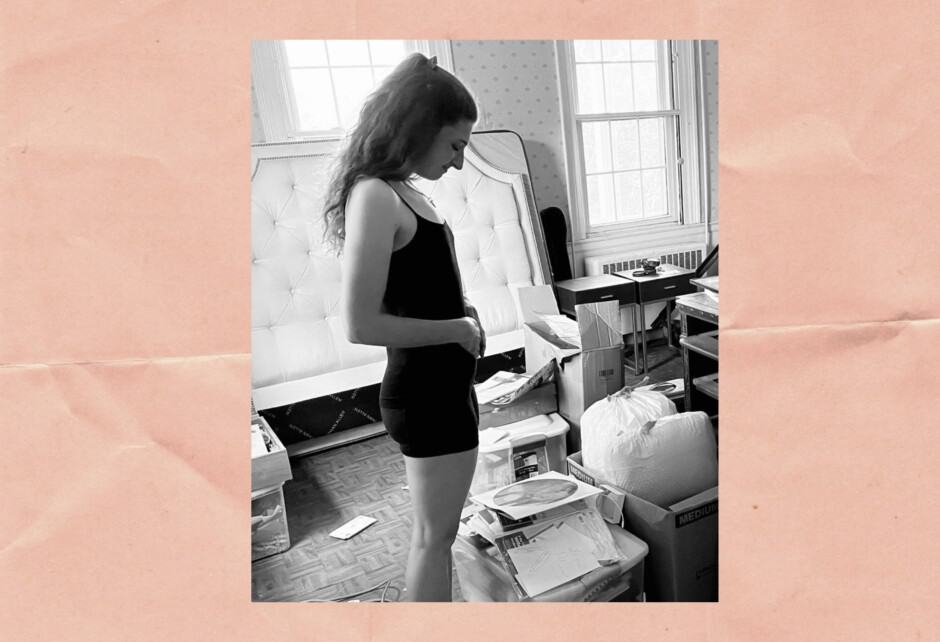
Mom Talk: Raising A Child With Hearing Loss
Written by Icia Delgado
Photography by Photo Courtesy of Icia Delgado
Out of every 1,000 children born in the United States, about 2 to 3 will be born with a detectable level of hearing loss. And more than 90% of these children are born to hearing parents. Below, is one such parent’s story. California-based mother Icia Delgado—a former globetrotter, Peace Corps Volunteer, educator, and writer—opens up about her initial shock at her son’s diagnosis, and how they are faring 8 years later. She also offers resources for other parents in the same boat, as well as advice for children and parents who encounter children with hearing loss.
Until my son was born in 2012, I had no idea that there was such a thing as a Newborn Hearing Screening. As many mothers can attest, pregnancy can be a time of worrying about every little thing that could possibly go wrong all the while trying to architect the perfect birth plan. Because he was born in a learning hospital, there were no less than ten doctors in training observing my delivery, in addition to three of my sisters, my husband, and my mom. Funny comments were flying and my husband—who didn’t speak English at the time—was asking me to translate a play-by-play above the cacophony. At 1:01pm on June 29, 2012, I gave birth to a beautiful baby boy and realized my greatest dream of becoming a mother.
On the evening of his birth, my doctor informed me that Marcos had failed his Newborn Hearing Screening. He what? She assured me it was probably fluid in his ears or some sort of obstruction or he hadn’t been completely asleep—which is required—during the screening. I wasn’t overly concerned as nobody in my family had congenital hearing loss and I presumed it was just a passing, solvable issue. I remember joking to my husband “our little rebel failed a hearing screening probably because he was named after a Mexican revolutionary.”
He was retested the following morning before I was released, and once again didn’t pass. Now I was concerned. No one came in to offer rationalizations of what it might be this time. Seven weeks later—the first appointment available—a final, conclusive screening was scheduled at an audiologist’s office near our home. The next few weeks I carefully noted Marcos’s reaction to noise. I watched him as my dog barked, music played, the doorbell rang, and my heart sank when I saw no response. When we finally had the next appointment, my stomach churned the entire time. When the test was finished, the audiologist informed us that he had severe hearing loss on his left side and moderate on the right. Hearing loss is measured on four levels: mild, moderate, severe, profound. He would need hearing aids and different DHH (deaf and hard of hearing) interventions to help him develop language.
I suddenly entered a new world I knew nothing about. So many questions and fears: Was this my fault? Had I done something wrong? I scrambled to find an explanation, it must be my maternal age (40), the antibiotics I had taken for a parasite I had contracted while living in Nicaragua during my pregnancy. Or was it the mosquito repellent chemicals that those trucks sprayed down the streets during the rainy season? Would I ever know?
Looking back I admit that I suffered from a profound sadness that first year. I cried every day as if I was mourning his hearing loss. I was grieving and terrified of how this would affect his chance to have a “normal life.” Every single noise I heard was amplified and I felt a keen sense of gratitude to hear the airplane pass above, the buzzing of my kitchen lights, and my husband’s car pull into the driveway, sounds he would likely never hear. The reactions of his grandparents and even some friends only heightened my fears and didn’t reassure me when I so desperately needed a bit of encouragement. My parents kept asking if he would grow out of it, as if it were a stage. My father, who suffered from hearing loss in his 60s and its ramifications, stated, “I just can’t believe he needs hearing aids. If you are blind or missing a limb, people feel sorry for you. But if you can’t hear they just think you are f*!%ing stupid.” There were questions such as—do we use ASL (American Sign Language)?—with such strong opposing opinions even from professionals. Do we speak to him in both English and Spanish (mom and dad’s native languages), or try not to give him any extra hurdles?
We had early intervention services with a program called Early Start that made home visits twice a week. They were a wealth of information and resources, but what helped me the most was reaching out to my cousin’s good friend, who has two children with hearing loss. Emailing Lyla was such a blessing, not only to learn basics such as zip-up clothes instead of pullovers, keeping extra batteries everywhere, critter clips to keep the aids attached to the shirt when they yank them out, and a very helpful explanation to kids/peers that ask about the hearing aids. She told me the analogy “it is like how some kids need glasses to help them see, hearing aids help my child hear.” Most significant of all was her true understanding in the deepest sense regarding my sorrow. When I emailed her the first time and told her that I was “devastated,” she responded with, “It is devastating. We were sad and mad and couldn’t imagine that our perfect girl could have anything wrong with her. Allow yourself to feel it all and even though in the grand scheme of things it is relatively minor and very manageable, it still sucks. Let yourself be sad, let yourself be angry, let yourself grieve because it may not be that big of a deal but in your world—it IS a big deal. Just because it may not be the worst deal doesn’t lessen the impact.”
At six months old he received his first pair of hearing aids. I immediately emailed Lyla, “we got the hearing aids yesterday!!!!! It was amazing. When they turned them on he was stunned, totally silent just looking around at all of us talking to him and didn’t say anything for a few minutes. Then when we had to take them out he started crying. He didn’t try to pull them out or anything, he is so happy and I am beyond ecstatic. It’s funny as I had forgotten my phone when we went to the appointment and I thought I would have all these messages from friends and family and only one friend called me. I just realized nobody but a parent of a child with hearing loss could know what an important day it was for us. It felt like one of the best days of my life.”
When Marcos was three years old we received astounding news; his hearing loss is genetic. At the urging of a new audiologist, we had a genetic test performed which revealed that both my husband and I have a recessive gene for Connexin 26. I was stunned and sad, but also relieved somehow. Stunned because I had already convinced myself that it was the antibiotics theory, sad because if I were to have another child, he/she could also be deaf or hard of hearing, and relieved because it wasn’t my fault.
I have learned a lot treading this path. Marcos suffered from chronic ear infections from three years of age until seven and we had to have tubes surgically placed twice as well as an additional surgery to remove the last pair. When he has been unable to wear his aids due to infection or fungus, it is challenging to communicate. We have told him repeatedly that his hearing loss can never be an excuse for him being unable to do something. I have always stressed the importance of self advocacy, letting somebody know he doesn’t hear them and to please repeat themselves. Often his peers get exasperated after repeating themselves two more times and ultimately reply with “Oh never mind,” which is hurtful, and while I can understand children’s irritation, it is impatient adults that I am unable to stomach. This is more the exception than the rule, but I still remember an upsetting incident with a teacher that approached her aide who I was chatting with and said: “Here, you wear this today, I don’t feel like dealing with it.” It was his FM system, a listening device that the teacher wears around their neck, clipping the mini microphone to their shirt, switches on, and when they speak, it allows their voice to go directly into his hearing aids. It takes about 30 seconds maximum to set it up. I was literally speechless. Did she not see me or forget that I am his mother? After all, this is a teacher, someone who has chosen a profession aimed at helping children. It was then that her insensitivity made me fear for the potential interactions with ruthless others that he will inevitably encounter throughout his life.
We have had other teachers who don’t really understand his disability and how strongly it affects the way that he learns. Many people don’t grasp that although glasses correct vision, hearing aids only amplify what he is hearing but do not transform him into a normal hearing individual. He’s been lucky not to have experienced being teased or bullied, but middle school is three years away and I worry.
Marcos, who now uses his middle name Elvis, is 8 years old. He is bilingual in English and Spanish and although he doesn’t prefer to sign, he has an ASL interpreter who has been an amazing contribution to his education since Kindergarten, she signs everything that his teacher says. He went to a DHH preschool for two years and has been mainstreamed since Kindergarten. Although he has an interpreter, speech therapy, as well as a DHH teacher that works with him twice a week one-on-one, he is an energetic, curious boy and a voracious reader. While it’s true that he misses a lot of what is said due to his hearing loss and even in spite of hearing aids, in no way does his disability define who he is. His hearing has declined and I am still a “bee in a jar” at every biannual hearing test. In spite of my greatest fears, my son isn’t “the kid with hearing aids”—he is an incredibly active boy with a wild mop of curls who loves Pokemon and, oh yeah, he has hearing aids.
Icia suggests these resources for additional reading: Hands and Voices is a big parent group that does a lot of good work for DHH parents. The Clerc Center is a National Deaf Education center that has parent resources too, including resources for interpreting.
Are you a mother with something to say? Send us an email to be considered for our “Mom Talk” column.
Share this story



